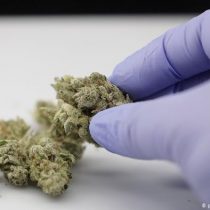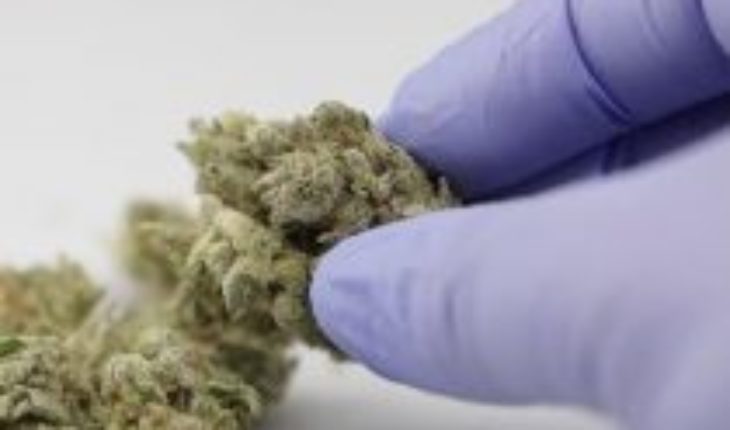
In the search for a vaccine or drug against the new SARS-CoV-2, researchers are currently applying both traditional and non-traditional approaches. Different medicines have been examined, such as Remdesivir, which was originally developed to treat Ebola.
In Germany, the first clinical trials of a vaccine with a drug developed for cancer immunology are underway. A French study suggested that nicotine, which is often inhaled when smoking, could protect against the new coronavirus.
And now, in Canada, a report has been published explaining that certain active ingredients of the psychoactive drug cannabis could also increase the resistance of cells against coronavirus. If the study is proven, cannabis could act similarly to nicotine. However, the study has not yet been reviewed by other researchers.
“The results on COVID come from our studies on arthritis, Crohn’s disease, cancer and others,” Dr. Igor Kovalchuck, professor of Biosciences at the University of Lethbridge, told DW.
Medical cannabis expert Igor Kovalchuck.
Blocks virus access
As with the alleged effect of nicotine against coronavirus, researchers assume that some cannabis substances could reduce the virus’s ability to enter lung cells, where it settles, reproduces and spreads.
In an article – not yet verified by other experts – published in preprints.org, Kovalchuck and his colleagues write that their specially developed cannabis strains effectively prevent the virus from entering the body. The coronavirus needs a “receiver” to enter a cell. This receptor is known as ACE2 (Angiotensin II Converter Enzyme), which is found in lung tissue, the mucosa of the mouth and nose, in the kidneys, testes and gastrointestinal tract.
According to his theory, it could be that cannabioids alter “access” due to the absence of ACE2. The host would then be less susceptible and vulnerable to the virus: “If there is no ACE2 in the tissue, the virus cannot penetrate,” Kovalchuck explained.
Doesn’t work with homegrown
Several doctors praise medical cannabis for the treatment of various diseases: from nausea to dementia. However, this is not the same one that can be planted in the garden, at home. These strains are normally known for their tetrahydrocannabinol (THC), the main psychoactive ingredient of the drug.
For their part, Canadian researchers have focused on varieties of the Cannabis sativa plant that have high levels of anti-inflammatory cannabinoid cannabidiol (CBD). They developed more than 800 new variants of Cannabis sativa with high levels of CBD and identified 13 extracts that, they say, regulate “access” to the human body.
Careful with publishing results
Some UK researchers suggest that there are misconceptions about medical cannabis in society. In addition, doctors fear that people will become addicted or try to treat themselves with other forms of consumption.
“Given the socio-political volatility of medicinal cannabis use, researchers should be especially careful in spreading their results,” said Chris Albertyn, an expert on cannabinoids and dementia. The best way to achieve this is to introduce open and transparent research methods, according to him.
“In this case, research in Canada has just discovered a possible therapeutic ‘mechanism of action’, but it would have to be validated and tested in well-designed and robust clinical trials, before significant clinical conclusions can be drawn,” Albertyn added.
“There is a broad interest” in further studying cannabis
Without adequate funding and without further research, knowledge about cannabinoids will be lacking, regardless of whether the results of the research are successful. “At least now there is wide interest,” Kovalchuck said.
While Kovalchuck and his co-authors admit that even their most effective extracts need large-scale validation, they add that cannabidiol could be a “supplement





